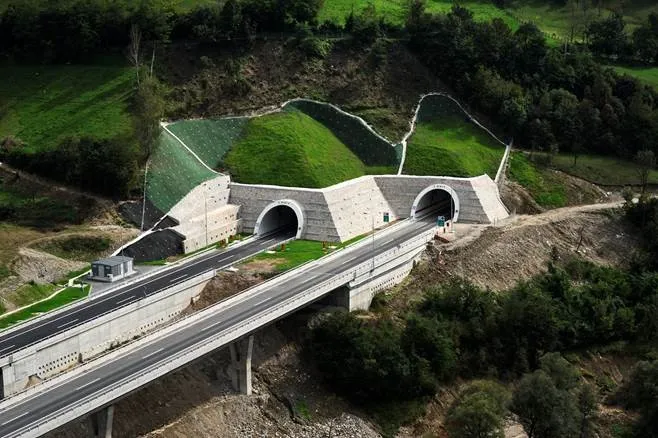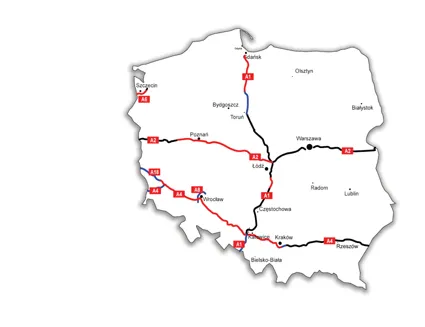Work will start on the 120km Sibiu-Pitesti section of Romania’s A1 Freeway in 2017, Romanian media report.
Around €1.6 billion will be spent on the route that will run through 20km of mountains.
In February, the National Highway and Roads Company, CNADNR, selected the Milan-based Spea Ingineria Europea and Tecnic Consulting Engineering of Romania to update the feasibility study on the section, which is part of Romania’s A1 Freeway.
But that contract has been challenged and will be scrutinised by th
April 17, 2015
Read time: 2 mins
Work will start on the 120km Sibiu-Pitesti section of Romania’s A1 Freeway in 2017, Romanian media report.
Around €1.6 billion will be spent on the route that will run through 20km of mountains.
In February, the National Highway and Roads Company,2870 CNADNR, selected the Milan-based Spea Ingineria Europea and Tecnic Consulting Engineering of Romania to update the feasibility study on the section, which is part of Romania’s A1 Freeway.
But that contract has been challenged and will be scrutinised by the National Council for Solving Complaints (CNSC), according to the newspaper Nine o’Clock.
The A1 Freeway is also part of Corridor IV, one of the Pan-European transport corridors. It runs between Dresden and Nuremberg in Germany and then forks further south either to end in Thessaloniki in Greece or forks to Constanţa in Romania and then to finish in Istanbul, Turkey.
Sibiu is one of Romania’s most important cultural centres and was co-designated European Capital of Culture for the year 2007, along with the city of Luxembourg. It was formerly the centre of the Transylvanian Saxons and has been ranked as "Europe's 8th most idyllic place to live" by Forbes business magazine.
Pitești is situated further south along the A1 freeway and closer to the capital Bucharest. It is an important railway junction, has the Arpechim oil refinery and is a marketing centre for the automotive industry, in particular the Renault subsidiary Dacia.
The A1 Freeway is also part of Corridor IV, one of the Pan-European transport corridors. It runs between Dresden and Nuremberg in Germany and then forks further south either to end in Thessaloniki in Greece or forks to Constanţa in Romania and then to finish in Istanbul, Turkey.
Around €1.6 billion will be spent on the route that will run through 20km of mountains.
In February, the National Highway and Roads Company,
But that contract has been challenged and will be scrutinised by the National Council for Solving Complaints (CNSC), according to the newspaper Nine o’Clock.
The A1 Freeway is also part of Corridor IV, one of the Pan-European transport corridors. It runs between Dresden and Nuremberg in Germany and then forks further south either to end in Thessaloniki in Greece or forks to Constanţa in Romania and then to finish in Istanbul, Turkey.
Sibiu is one of Romania’s most important cultural centres and was co-designated European Capital of Culture for the year 2007, along with the city of Luxembourg. It was formerly the centre of the Transylvanian Saxons and has been ranked as "Europe's 8th most idyllic place to live" by Forbes business magazine.
Pitești is situated further south along the A1 freeway and closer to the capital Bucharest. It is an important railway junction, has the Arpechim oil refinery and is a marketing centre for the automotive industry, in particular the Renault subsidiary Dacia.
The A1 Freeway is also part of Corridor IV, one of the Pan-European transport corridors. It runs between Dresden and Nuremberg in Germany and then forks further south either to end in Thessaloniki in Greece or forks to Constanţa in Romania and then to finish in Istanbul, Turkey.








